Litany of Lab Horrors: A PETA Exposé
A PETA eyewitness investigation reveals suffering, neglect, and incompetence in University of Pittsburgh laboratories.
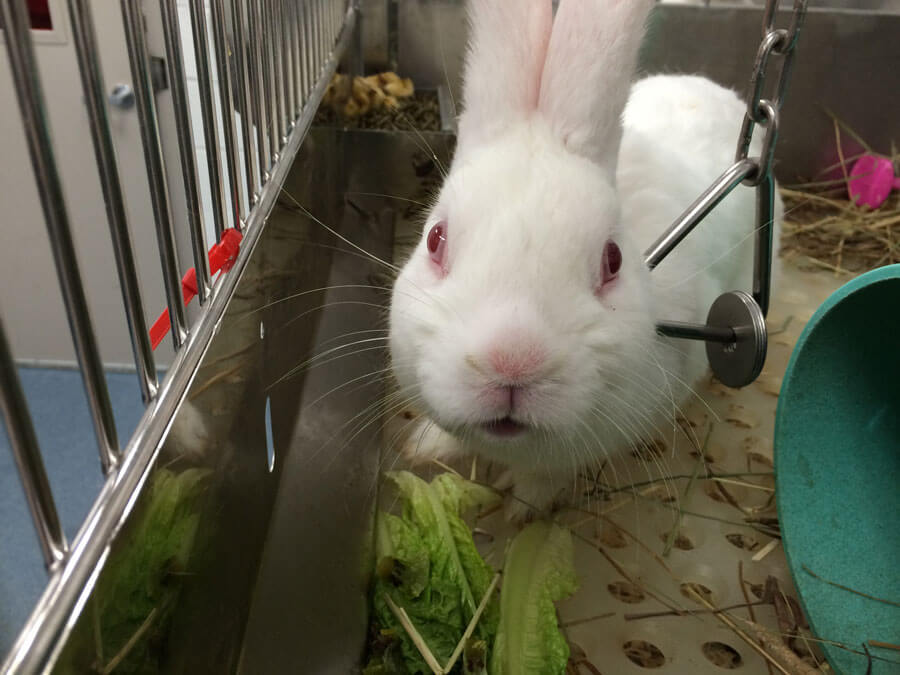
Limbs surgically bent into unnatural positions. An unsutured wound so deep that it exposed tendons. Experiments designed to kill slowly and painfully. These are just a few of the horrors documented in PETA eyewitness footage captured in laboratories hidden from public view at the University of Pittsburgh.
Pitt, as the university is called, uses thousands of animals—including dogs, cats, monkeys, rabbits, mice, and rats—in cruel experiments. This world of suffering was secret until PETA went inside and uncovered what U.S. taxpayers are funding there. Pitt raked in more than $475 million in federal research grants in 2016 alone, and much of that was wasted on experiments involving animals.
What we found: Experimenters, not veterinarians, often gave the orders regarding animal care, and experiments that were horribly cruel and seemingly pointless were approved by both the university and the federal agencies that fund them.
Denied Adequate Pain Relief
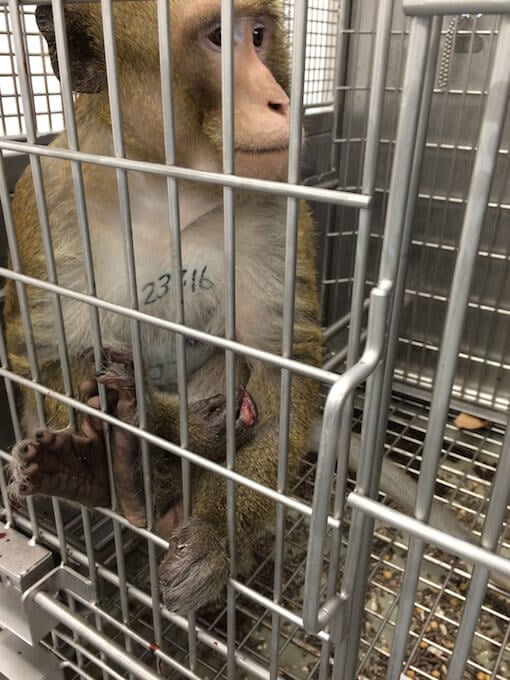
He was selected to be used in an experimental laparoscopic surgery carried out by George Gittes—but his suffering extended well beyond the experiment. Caged alone, he was desperate for affectionate physical contact. He presented his back to Pitt staffers and gestured at them to groom it.
But Pitt’s individual housing didn’t protect Gandalf. He was bitten down to the tendons on his hand by a monkey caged nearby. The veterinarian on call reportedly refused to go in to examine the injury. Instead, she simply prescribed ibuprofen—a woefully inadequate treatment for such a serious wound. As days wore on with no further pain relief, Gandalf began cradling his hand and holding it under his armpit, apparently in an effort to cope with the pain. Records reportedly showed that Gandalf might not even have been given the ibuprofen consistently.
Three weeks after Gandalf was used in an experimental surgery, he was euthanized. The experimenters extracted tissue then sealed his body in a biohazard bag.
Other monkeys in Pitt’s laboratories slowly lost their minds, pacing, rocking, and displaying other repetitive behavior.
Twisted Limbs
Would you let a plastic surgeon perform crippling, painful orthopedic surgery on you? Two young rabbits named Jack and Daniels didn’t have a choice when Sandeep Kathju came for them.
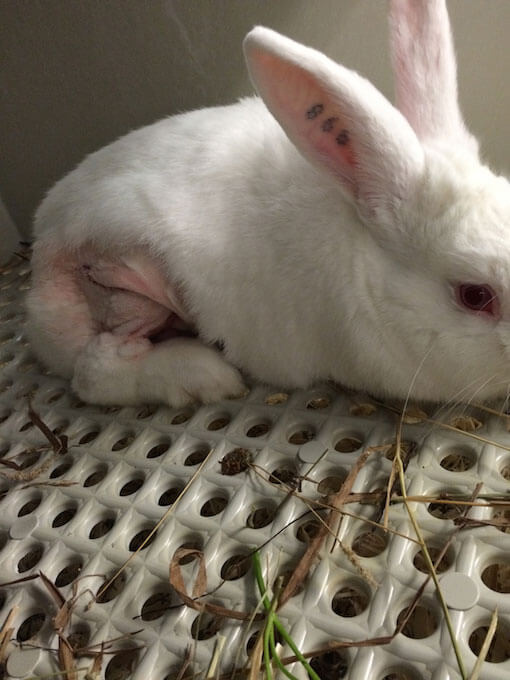
He cut ligaments in their knees then contorted their legs into an unnatural position and finally inserted a wire into the knees to hold the legs in place. The purpose? To cause intentional trauma to the knee joints.
After more than two weeks in this excruciating position, both rabbits had lost significant weight, indicating chronic pain and distress. But Jack and Daniels were forced to endure six more weeks of this agony.
The wires placed in the knees of other rabbits similarly tormented by Kathju prevented normal movement, causing their feet to get stuck on the perforated floors of the cages and tearing off their nails. Apparently, this was not anticipated by the experimenter.
Breeding Deformed Animals
Experimenter Gregory Cooper deliberately breeds rabbits so that their babies will have malformed skulls—even though decades of such cruel experiments have failed to produce therapies that could help humans afflicted with similar conditions.
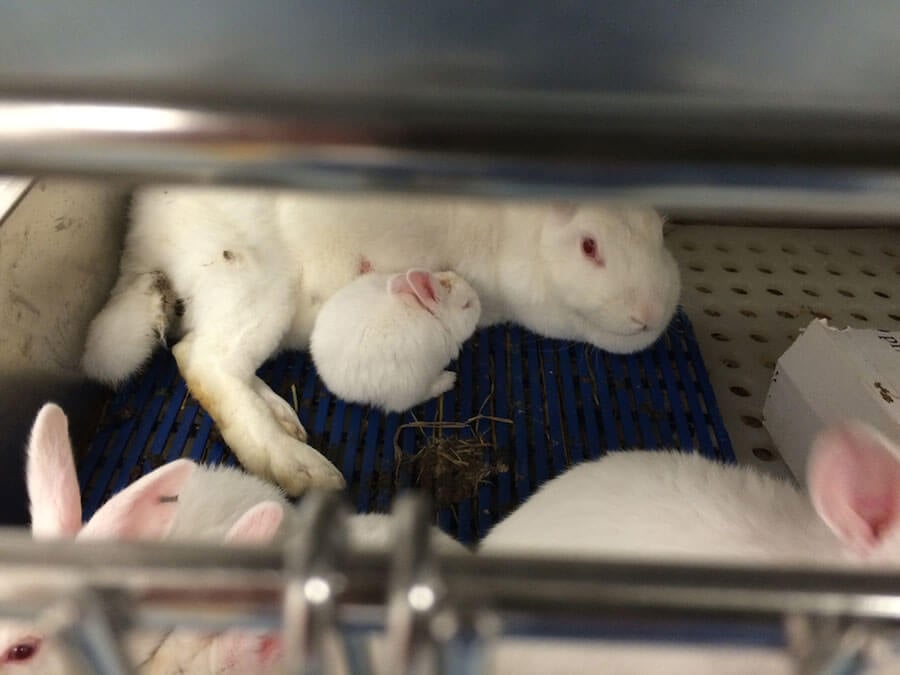
One rabbit known only as “740-12,” who was used to produce baby rabbits for Cooper’s experiments, was seen exhibiting stroke-like symptoms. She didn’t—or couldn’t—lift her head, and wasn’t moving her back limbs at all. She died later in the day—and her four hungry babies were euthanized. A necropsy showed that 740-12 had suffered from a rare metabolic disorder called “pregnancy toxemia,” which could have been prevented by controlling her diet—yet this change was not made.
It wasn’t until a month later, when a second rabbit named Puddles died of pregnancy toxemia, that the rabbits’ diets were finally examined.

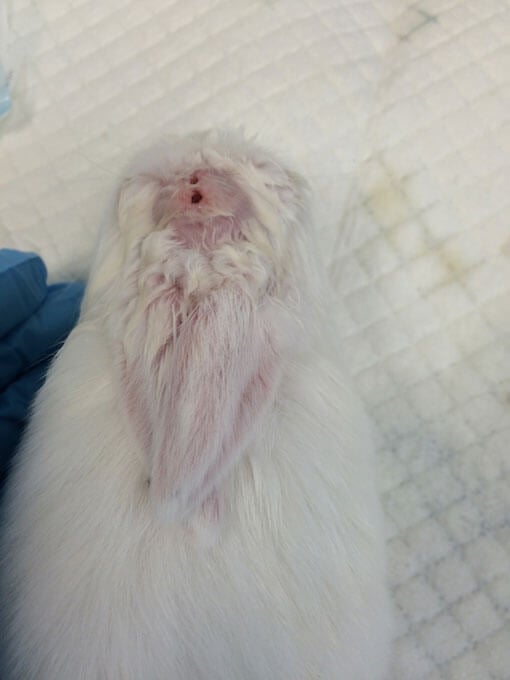

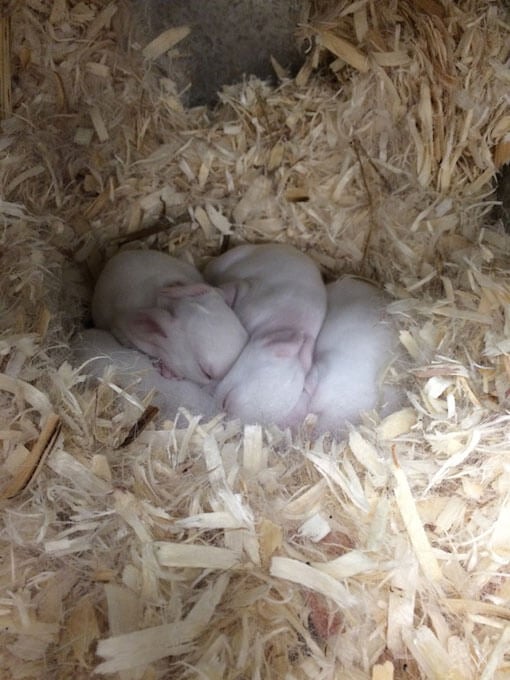
Drowned, Dehydrated, Dying
If mice and rats believed in hell, it would look to them like Pitt’s laboratories.
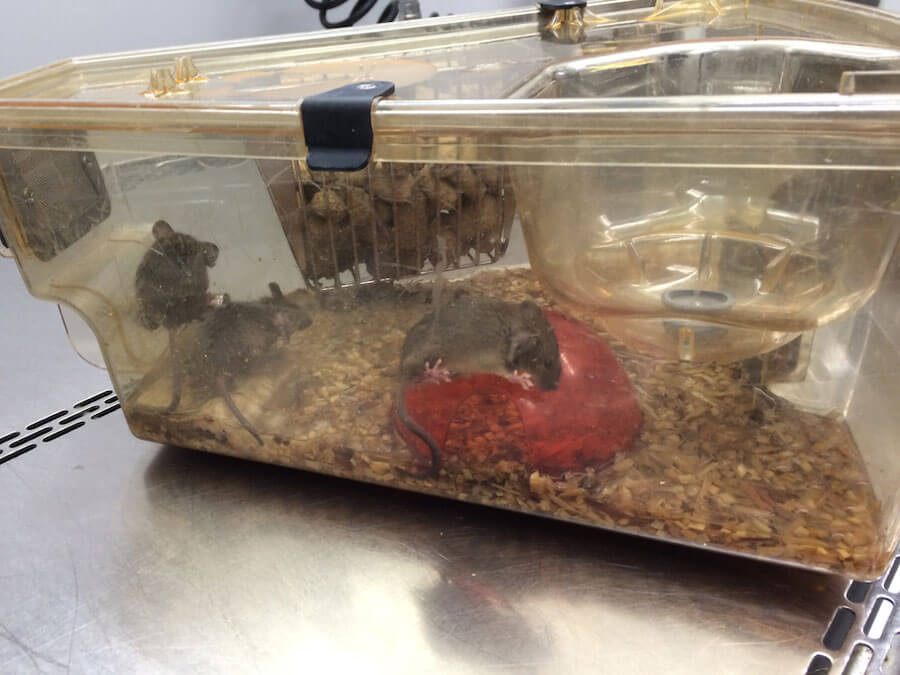
They were denied proper care, and many suffered from excruciating—yet preventable—ulcerative dermatitis that caused painful sores. In one experiment, Rajesh Aneja punctured the intestines of mice so that harmful bacteria would leak into their stomachs and cause septic shock. The result? According to one veterinarian, the mice were “falling over dead.” Pitt’s animal experimentation oversight committee approved Aneja’s experiments even though a landmark study determined that the results of sepsis experiments in mice can’t be applied to human beings.
Experimenter Ira Fox implanted diseased human liver cells in mice, rats, and monkeys. Instead of providing the relief of humane euthanasia after they got sick, he forced the rats to endure a prolonged and painful death.
Mice and rats also suffered from neglect and incompetence—drowning when cages flooded and there was no escape, dying of thirst when mechanical or human errors cut off their access to water, or succumbing to injuries when they were housed with incompatible cagemates.
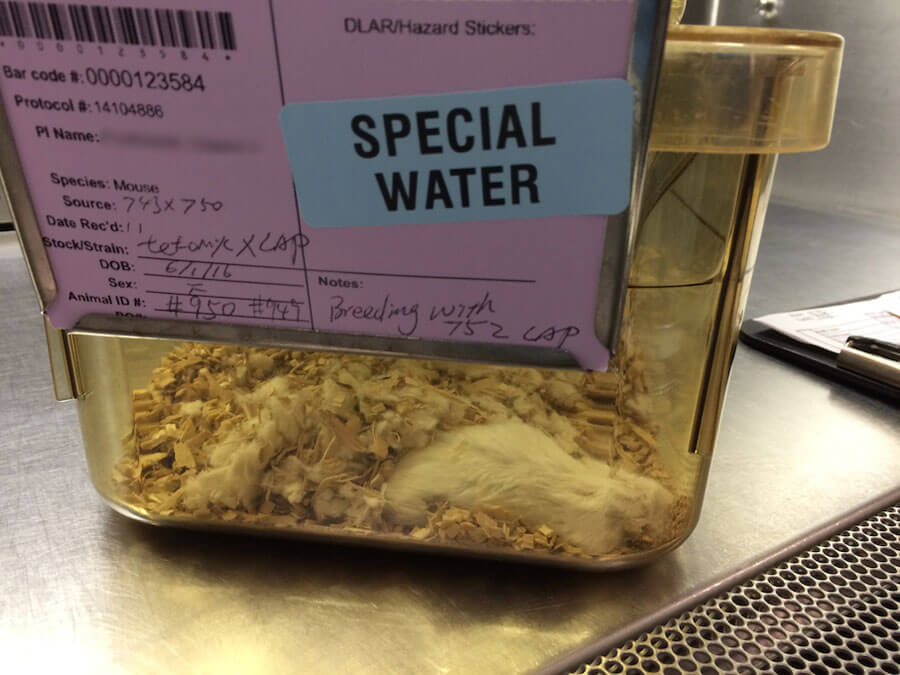
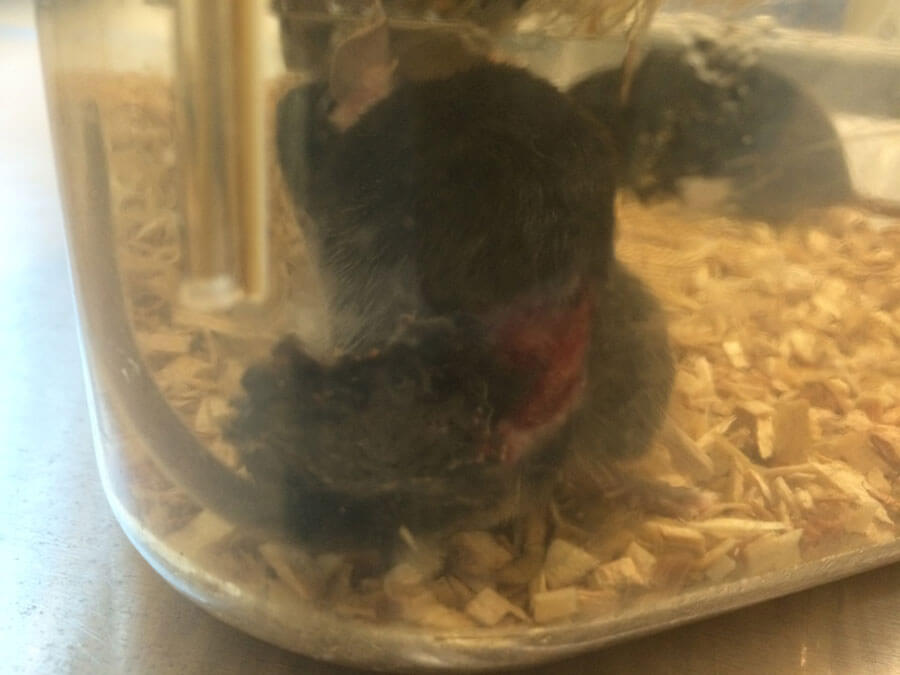
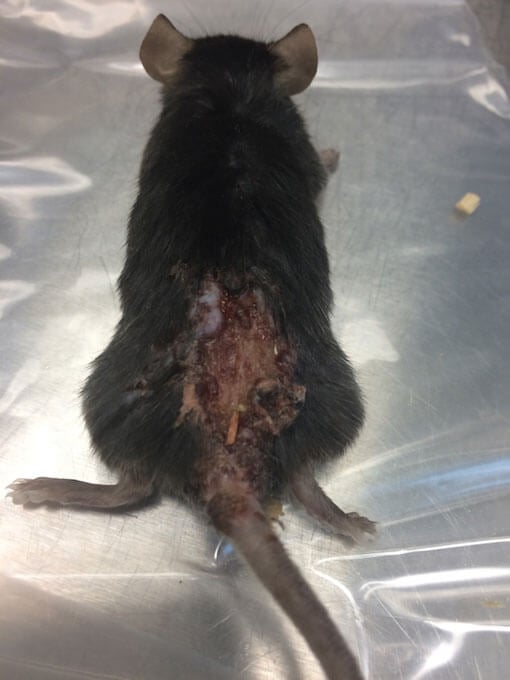
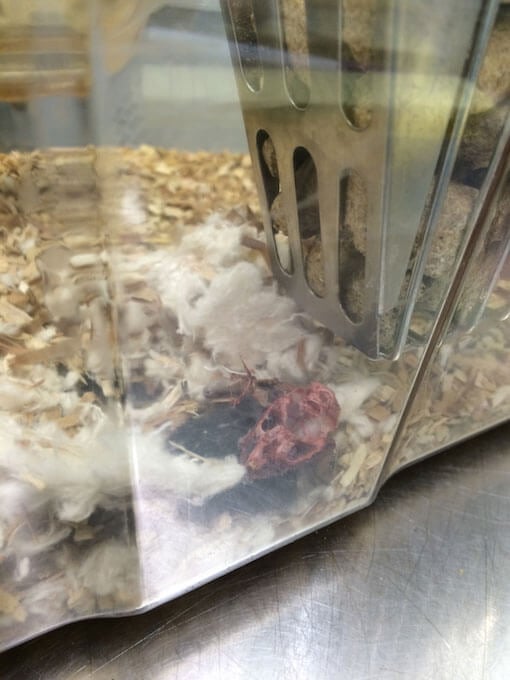
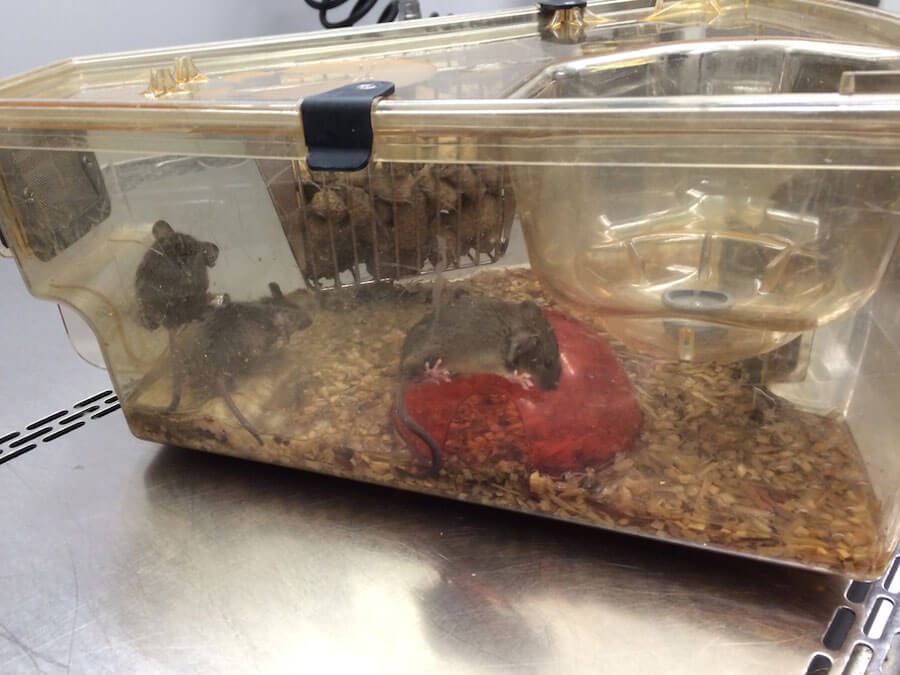
No Accountability
The shoddy chaos at Pitt makes it difficult to imagine that any useful science could be coming out of the university.
- Six monkeys with SIV (simian HIV) used in experiments conducted by Ivona Pandrea were taken from one building to another and placed in a necropsy room. But no one had put any warning signs on the door indicating that there were animals inside or that the room had become a biohazard—putting staff at risk. When this was reported to the senior clinical veterinarian, she expressed surprise, saying that no one had even told her that the monkeys were SIV-positive.
- When a staffer found a mouse caught in the wire feeder lid of a cage, she pulled the animal loose, tearing off two toes in the process. Unbelievably, she wrote in the mouse’s health report that the mouse was “fine.”
- A staffer put several live mice into a plastic bag and sealed it. By the time another worker noticed the bag, some of the mice had already suffocated, and when the supervisor questioned the action, the staffer laughed.
- One terrified monkey escaped, scrambled to the top of a rack of cages, and eluded capture for three hours.
- A veterinarian drained pus from the abscess of a rabbit named Booker, using a scalpel to cut into it and then pressing on it—which causes excruciating pain—for more than 10 minutes before fully inducing anesthesia.
- A veterinary technician and a senior veterinarian attempted to draw blood from an un-anesthetized rabbit who struggled and kicked for 20 minutes, causing a hematoma.
Where is the accountability for this seemingly uncaring, incompetent staff?
Pitt’s Institutional Animal Care and Use Committee (IACUC) is the oversight body responsible for ensuring that animals in its laboratories do not experience pain or distress beyond what is deemed “necessary” for the experiment. The fact that Pitt’s IACUC approved barbaric and antiquated experiments and turned a blind eye to cruel and callous treatment of animals is a shameful abdication of responsibility.
You Can Help Stop This!
PETA has filed a complaint with the U.S. Department of Agriculture for alleged violations of the Animal Welfare Act, but we also need to let our government know that our tax dollars should not be funding this suffering. Pitt receives hundreds of millions of dollars in grants from NIH each year—please demand that NIH put an immediate stop to funneling money into Pitt’s cruel experiments on animals.
